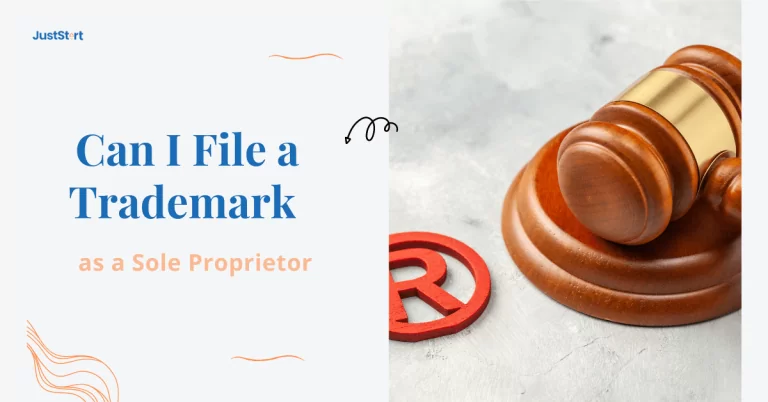A partnership firm is an association of two or more persons who have agreed to share the profits of the business. In this article, we will know about the Registration and Dissolution procedure of a partnership firm and its consequences.
Table of Contents
TogglePartnership Firm Registration
Application for registration:- The registration of a firm may be effected at any time by sending by post or delivering it to the registrar of the area in which any place of the business of the firm is situated or proposed to be situated, a statement in the prescribed form and accompanied by the prescribed fee, stating:-
(a) The firm’s name
(b) The place or principal place of business of the firm.
(c) The names of any other places where the firm carries on business.
(d) The date when each partner joined the firm
(e) The names in full and permanent addresses of the partners
(f) The duration of the firm
The statement shall be signed by all the partners, or by their agents specially authorized on this behalf.
- Each person signing the statement shall also verify it in the manner prescribed.
- A firm name shall not contain any of the following words namely queen, king, emperor, royal, or patronage of government. Except when the state government signifies its consent to use such words as part of the firm name in writing.
When the registrar is satisfied that the provisions of section 58 are duly complied with, he shall record an entry of the statement in a registrar called the registrar of firms and shall file the statement.
The firm when registered shall use the bracket and word registered immediately after its name.
Late registration on payment of a penalty:- If the statement in respect of any firm is not sent or delivered to the registrar within the time, then the firm may be registered on payment, to the registrar, of a penalty of one hundred rupees per year of delay or a part thereof.
Consequences Of Non-Registration
Under English law, registration is compulsory. Therefore, there is a penalty for the non-registration of firms. But the Indian Partnership Act does not make the registration of firms compulsory nor does it impose any penalty.
However, non-registration of partnership gives rise to some disabilities. Although registration is not compulsory yet the consequences or disabilities of registration have persuasive pressure on their registration. The disabilities are as follows:-
- No suit in a civil court by the firm or the other co-partners against the third party:- The firm or any other person on its behalf cannot take an action against the third party for breach of contract entered by the firm unless the firm is registered and the persons suing are or have been shown in the registrar of firms as partners in the firm. In other words, a registered firm can only file a suit against a third-party and the person suing has been in the registrar of firms as a partner in the firm.
- No relief to partners for set-off to claim:- If an action is brought against the firm by a third party, then neither the firm nor the partner can claim any set-off if the suit is valued for more than rupees hundred or pursue other proceedings to enforce the rights arising from any contract.
- Aggrieved partner cannot take legal action against the other partner of the firm:- A partner of an unregistered firm is precluded to take any legal action against the firm or any person to have been a partner in the firm. But such a person may sue for dissolution of the firm and realization of his share in the firm’s property, where the firm is dissolved.
- Third-party can sue the firm:-In case of an unregistered firm, an action can be brought against the firm or by a third party.
Exceptions Of Partnership Firm
- The right of third parties to sue the firm or any other partner.
- The right of partners to sue for dissolution of the firm or settlement of the accounts of a dissolved firm, or for the realization of the property of a dissolved firm.
- The power of an official assignee, the receiver of the court to release the property of the insolvent partner and to take action.
- The right to sue or claim a set-off if the value of the suit does not exceed rupees hundred in value.
- The right to sue and proceedings instituted by the legal representatives or heirs of the deceased partner of a firm for accounts of the firm or to realize the property of the firm.
Dissolution
According to the Indian Partnership Act, of 1932, the dissolution of a partnership between all partners of a firm is called dissolution. It means breaking up the relationship between partners of the firm under various circumstances contemplated by the act.
Modes Of Dissolution
1. Dissolution without the order of the court or voluntary dissolution
It consists of four types:-
(i) Dissolution by agreement:-
A firm may be dissolved with the consent of all the partners or under a contract between partners.
(ii) Compulsory dissolution:- A firm is compulsorily dissolved:-
- By the adjudication of all the partners or of all the partners but one as insolvent
- By the happening of any event which makes it unlawful for the business of the firm to be carried on or all the partners to carry it on in partnership.
However, when more than one separate adventure or undertaking is carried on by the firm, the illegality of one or more shall not of itself cause the dissolution of the firm in respect of its lawful adventure and undertakings.
(iii) Dissolution on the happening of certain contingencies:-
Subject to a contract between the partners, a firm may be dissolved on the following contingencies:-
- By the adjudication of a partner as an insolvent.
- By the death of a partner.
- Where the firm is constituted to carry out one or more adventures or undertakings, then by completion thereof.
- Where the firm is constituted for a fixed term, on the expiry of that form.
(iv) Dissolution by notice of partnership at will:-
- Where the partnership is at will, the firm may be dissolved by any power giving notice in writing to all the other partners of his intention to dissolve the firm.
- In case the date is mentioned in the office, the firm is dissolved from the date mentioned in the notice as the date of discussion, or in case no date is mentioned, as from the date of the communication of the notice.
2. Dissolution by the court
The court may at the suit of the partner, dissolve the firm on any of the following grounds:-
(a) Insanity/unsound mind:-
Where the partner has become of unsound mind, the court may dissolve the firm on a suit of the other partners. Temporary sickness is no ground for the dissolution of the firm.
(b) Permanent incapacity:-
When a partner other than the partner suing, has become in any way permanently incapable of performing his duties as a partner, then the court may dissolve the firm. Such permanent incapacity may result from physical disability or illness etc.
(c) Misconduct:-
Where a partner is guilty of conduct that is likely to affect prejudicially the carrying on of business, the court may order for dissolution of the firm. The misconduct doesn’t need to include the conduct of the business. The important thing is the adverse effect of the misconduct on the business. In each case, the nature of business will decide whether an act is misconduct or not.
(iv) Persistent breach of agreement:-
Where a partner wilfully commits a breach of agreements relating to the management of affairs of the firm then the court may dissolve the firm. The following comes into a breach of contract:-
- Holding more cash than allowed
- Refusal to show accounts despite repeated requests etc.
- Keeping erroneous accounts
(v) Transfer of interest:
Where a partner other than the partner suing has transferred the whole of his interest in the firm or to a third party or has allowed his share to be charged or sold by the court, in the arrears of land revenue due by the partner, the court may dissolve the firm.
(f) Continuous/Perpetual losses:-
Where the business of the firm cannot be carried on except at a loss in the future, the court may dissolve the firm.
(g) Just and equitable grounds:-
Where the court considers any other grounds or equitable to the dissolution of the firm, it may dissolve a firm. The following are the cases on just and equitable grounds:-
- Deadlock in the management
- Loss of substratum
- Gambling by a partner on a stock exchange
- Where the partners are not on talking terms between them
Consequences of Dissolution
1. Liability for acts of partners done after the dissolution
In the dissolution of the firm, the partners continued to be liable as such to third parties for any act done by any of them. This would have been an act of the firm if done before the dissolution until public notice is given of the dissolution.
Provided that the estate of a partner who dies, or is insolvent, or who is not known to the person dealing with the firm to be a partner, retires from the firm is not liable for acts done after the date on which he ceases to be a partner.
2. Right of partners to have business wound up after the dissolution
On dissolution of the firm, every partner or his representative is entitled as against all the other partners or their representatives to have the property of the firm applied in payment of the debts of the firm. And to have the surplus distributed among the partners or their representatives according to their rights.
3. Continuing authority of partners for purposes of winding up
After the dissolution of the firm the authority of each partner to bind the firm. The other mutual rights and obligations of the partners, are necessary to wind up the affairs of the firm.
Therefore, the firm is in no case bound by the acts of the partner who has been adjudicated insolvent. But this provision does not affect the liability of any person who has knowingly permitted himself to be the partner of the insolvent.
4. Mode of settlement of partnership accounts
In settling the accounts of the firm after dissolution, the following rules shall be subject to agreement by the partners:-
- Losses including deficiencies of capital shall be paid first out of profits and next out of capital, by the partners individually in proportions in which they were entitled to share profits.
- The assets of the firm including any sum contributed by the partners to make up for deficiencies of capital must be applied in the following manner:-
(a) In paying the debts of the firm to third parties.
(b) In paying each partner what is due to him from the capital.
(c) In paying each partner what is due to him on account of capital.
(d) The residue if any shall be divided among the partners in the proportions in which they share the profits.
5. Payment of firm debts and of separate debts
Where there are joint debts due from the firm and also separate debts due from any partner:-
- The property of the firm shall be applied in the first instance in payment of the debts of the firm. If there is any surplus, then the share of each partner shall be applied to the payment of his separate debts or paid to him.
- The separate property of any other partner shall be applied first in the payment of hid separate debts. And surplus in the payment of the debts of the firm.








